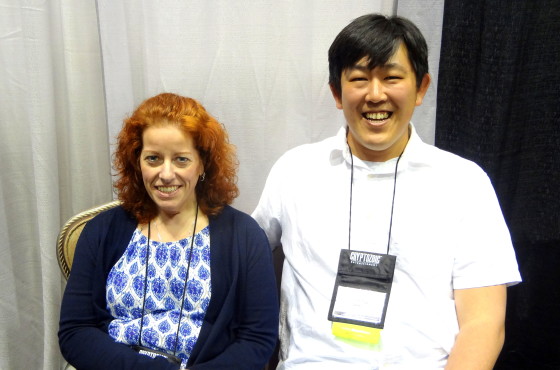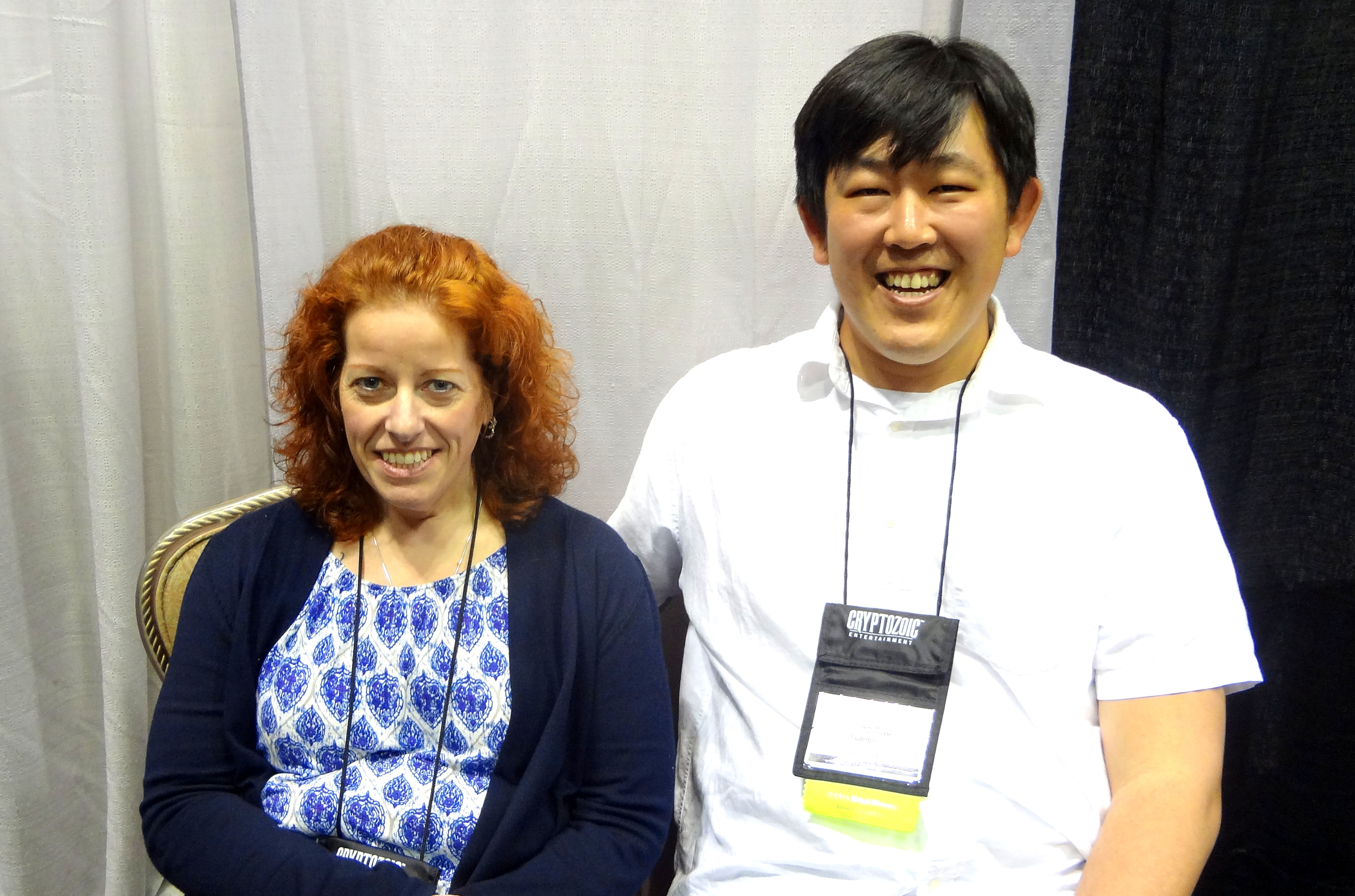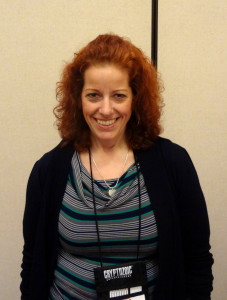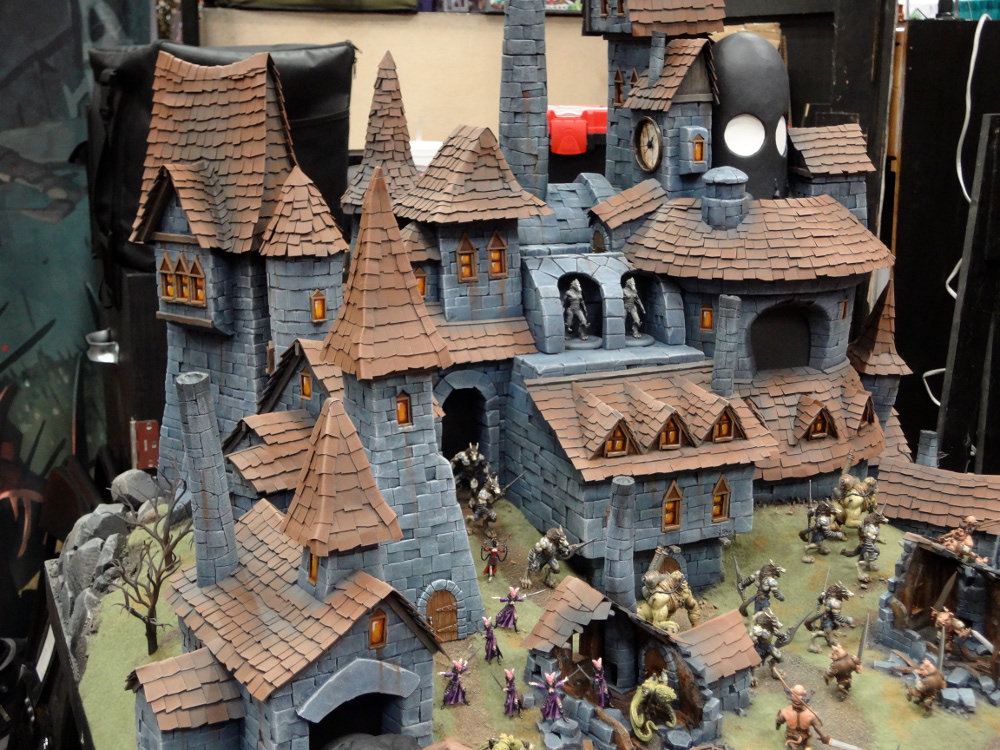GAMA Trade Show: Customer Service Seminar
Joann Gain, head of the GAMA Retail Division and owner of Jester’s Playhouse, kicked off the GAMA Trade Show on Monday night, March 18 with a seminar on Customer Service. With Amazon and other internet retailers waiting in the wings with lower prices, retail stores must have the best customer service, Gain exhorted. With excellent customer service Gain has sold Jenga for three times as much as mass market retailers. Her simple advice? Treat customers with a friendly attitude. Leave your baggage at home. “Don’t just sell vanilla ice cream,” she advised. Provide customers with the products that mass market retailers cannot. Have a thorough knowledge of your inventory and what’s available; make sure your employees do as well. On this point, a retailer chimed in and shared that he has a Monday training meeting from 8-10 AM for his staff of nine so they can familiarize one another with new products.
While Gain made several other points, the seminar shifted into more of a roundtable with retailers sharing their problems and eliciting solutions from the other 22 retailers in the room. When the topic of customer reviews on sites like Google and Yelp came up, the general consensus was to ignore the negative reviews, but several retailers spoke up and said that they personally respond in a professional manner to negative reviews. Marcus King, head of Troll and Toad’s retail, responds to everything except Yelp. As someone who might know a thing or two about trolls on the internet, he pointed out that “Yelp is a swamp.” and that “Some people will hate you for absolutely no reason.”
Problem Customers
Unfortunately from attending the seminar it would seem that Magic players are hated for some very specific reasons. Joann Gain finally tired of one Magic player who had been a “pain in the butt” for over six years and hasn’t regretted banning him from the Jester’s Playhouse. Another retailer spoke up, describing his partner at his store as “an asshole” and said that his partner hates Magic players and is getting more and more aggressive when booting MTG players out of the store. Keeping it positive, Marcus King suggested “Have you tried to show him what percentage of sales are Magic?” A retailer in the back also keeps it positive in her own way and shared that at her store, she gives employees a paid break when she notices that they are getting too hostile with customers, asking them to take the time to rethink their employment and attitude. John Coviello from Little Shop of Magic revealed that he had to call the police recently to get a patron out of the store for the first time in 19 years. The gamer would not follow directions and became belligerent with store staff, Coviello said, but banning him has been worth it due to an improvement in the store’s atmosphere. Just as in Dave Wallace’s Building a Better Manager seminar, retailers agree that retaining troublesome patrons is seldom worthwhile. Retailers also revealed that NPCs are not necessarily Non Player Characters in game stores, but instead Non-Paying Customers.
Airing the Dirty Laundry: Body Odor
What happens when two dozen retailers come together? They complain about their customers’ body odor! Amazingly game store owners confirmed the gamer stereotype shared in every online discussion about what to bring to a gaming convention: deodorant. It’s such an issue that one game store owner keeps both his and hers spray deodorant (and has to replace them on a regular basis because they are being used). Another owner spoke up and said that she keeps Febreeze around for such cases, while a third owner said that he takes such smelly customers aside, out of anyone’s else’s hearing, and explains the odor problem to them. He reports that these conversations have never been disastrous and that the offending customers get the hint.
Customer Service for Customers’ Transactions
Talk switched back to a less odiferous conundrum: customers buying, selling, and trading within game stores. In general, the consensus seemed to be that most owners ban such transactions, with many of them moving to the parking lot instead. Other stores take a more proactive stance such as Little Shop of Magic. LSoM regularly hosts well-attended flea markets where customers can trade through the store with Little Shop taking three to four percent to cover credit card costs. Sellers receive a gift certificate for store credit for the agreed-upon price of the game or miniatures sold to another customer. At Troll and Toad, Marcus King does something similar, using gift coins instead of gift certificates, specially crafted by Reaper Miniatures. It’s a win-win situation with both retailers and their customers benefitting.

Relaxing After a Busy GTS 2013: Joann Gain (Jester’s Playhouse) and Dean Kao (Eudemonia)



